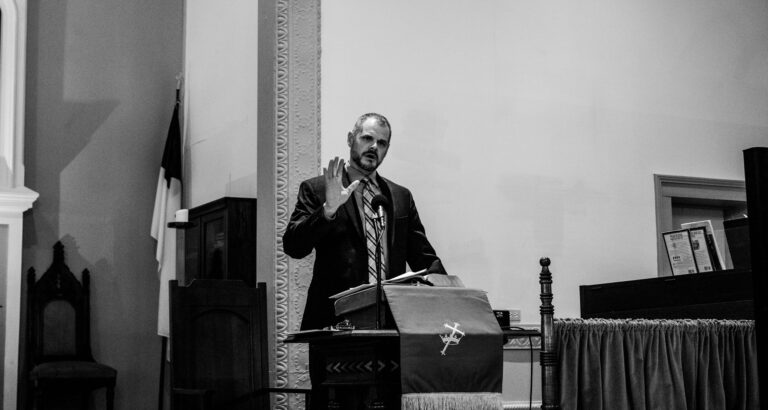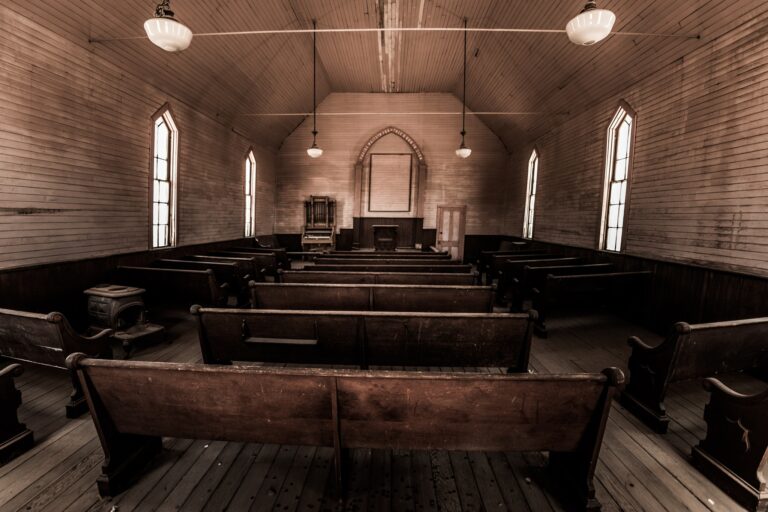The following is a conversation between Pastor Joshua Moore of Red Door Church in South Royalton and Dan Isadore (M.Div.), a recent graduate of Pittsburgh Theological Seminary and Associate Director of the Pittsburgh Experiment. Josh and Dan hope to have regular discussions on various theological topics and important issues facing Christians today.
Josh: Dan, Bryan Chappell says in his book Christ-Centered Worship:
“Liturgy tells a story. We tell the gospel by the way we worship.”
My question would be, I guess, what is the role of form in our worship services and how it is different from content? That is, the propositional content proclaimed throughout the service in preaching and teaching?
Dan: Funny you should ask that. I’ve been reading and thinking about it lately. I’m pretty convinced that form is the point of theology. The goal of the Word in reference to creation is to become flesh. Words aren’t ends in the themselves; they are acts meant to nudge us into certain forms or ways of being. Corporate worship, I think, should be the place where we engage in disciplines that help form us or en-flesh the Word in life.
So liturgy is time to practice for life. But liturgy is also living life in disciplined forms. We gather to engage each other in these forms of life brought into being by the Word, and that also becomes practice for participating in these forms of life in our day-to-day existence. That, I’m convinced, is how we need to engage in evangelism today. By living into these forms in the world , we provide people an avenue to experience the Word before we attempt to explain Him.
So, where I’m at right now, to be Christian is to practice and live a “form of life” rather than to adhere to a body of doctrine of propositions. I’m thinking of Matthew 7:24-27.
Josh: So what does the above imply about Christians or groups of Christians who would not articulate the faith in a way that lines up with historical Christian orthodoxy? If we believe that right living flows from right thinking, can we have the proper forms of life without the proper belief for it to flow out of? Or, would you argue that the forms can also influence thinking? That the relationship between thinking and living works both ways; that the forms of worship and life can have as much impact on our thinking as our thinking can have on our form of life?
Dan: Bonhoeffer said,
“only the obedient believe.”
I think that’s right. right belief only comes en route. Obedience is the context of true knowledge. Jesus says as much: “Whoever has my commandments and keeps them, he it is who love me. And he who loves me will be loved by my Father and I will love him and manifest myself to him” (John 14:21).
It’s as we follow Him that we get to know Him. We can hear of Him, but obedient interaction brings what is witnessed to by words into my experience. 1 John, I think, is an epistle that deals a lot with this area. Knowledge is experiential. It’s interactive. It absolutely involves the mind, but not in an abstract, detached way. I think of it in terms of a human-to-human relationship. What is it to know another? It’s to interact with them in an appropriate way. You can know about someone from afar, but you wouldn’t say that you know them (pro athlete or a movie star, for instance). You only truly know someone when you interact with them: talking, laughing, eating, traveling, giving and receiving, helping and being helped by. Knowing involves embodiment.
And I often think that our minds are trying to catch up with our experience, rather than vice versa, Thought is reflection on the happening, or rather what is happening in the happening. The truths are not the thoughts; the truths are the reality. So within the Christian tradition, the Truth is not a confession or a creed; the Truth is a Person. We don’t “have” the Truth; we follow Him, with heart, mind, and body. And it’s only in the following that truths about the Truth come to us. But first those truths hit us, and then we reflect. And our reflection may be more or less faithful to the reality.
Josh: So how would you sum this up for us?
Dan: To sum it up I think explanation and articulation follow the experience of being acted upon by Christ. Confession and beliefs are downstream from our spiritual disciplines; our forms are ways of consciously opening ourselves to the transformative action of God. This is also why I think that there are no prerequisites to following Jesus. He must change you. So you come and follow Him with me, and it’s from within that following that your beliefs and behaviors get shaped in ways and times unique to your person. The main thing is to just jump into the forms. Start loving your neighbor. Start reading scripture in community. Start praying. Start confessing. Start eating together. That’s the main thing in my eyes. Inside these ways God works on us, waking us up little by little.
Josh: Good stuff. Thanks for taking a moment to share with us Dan.



